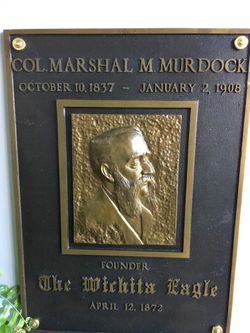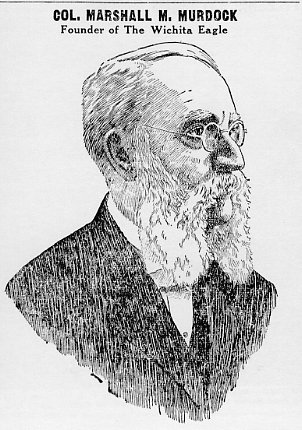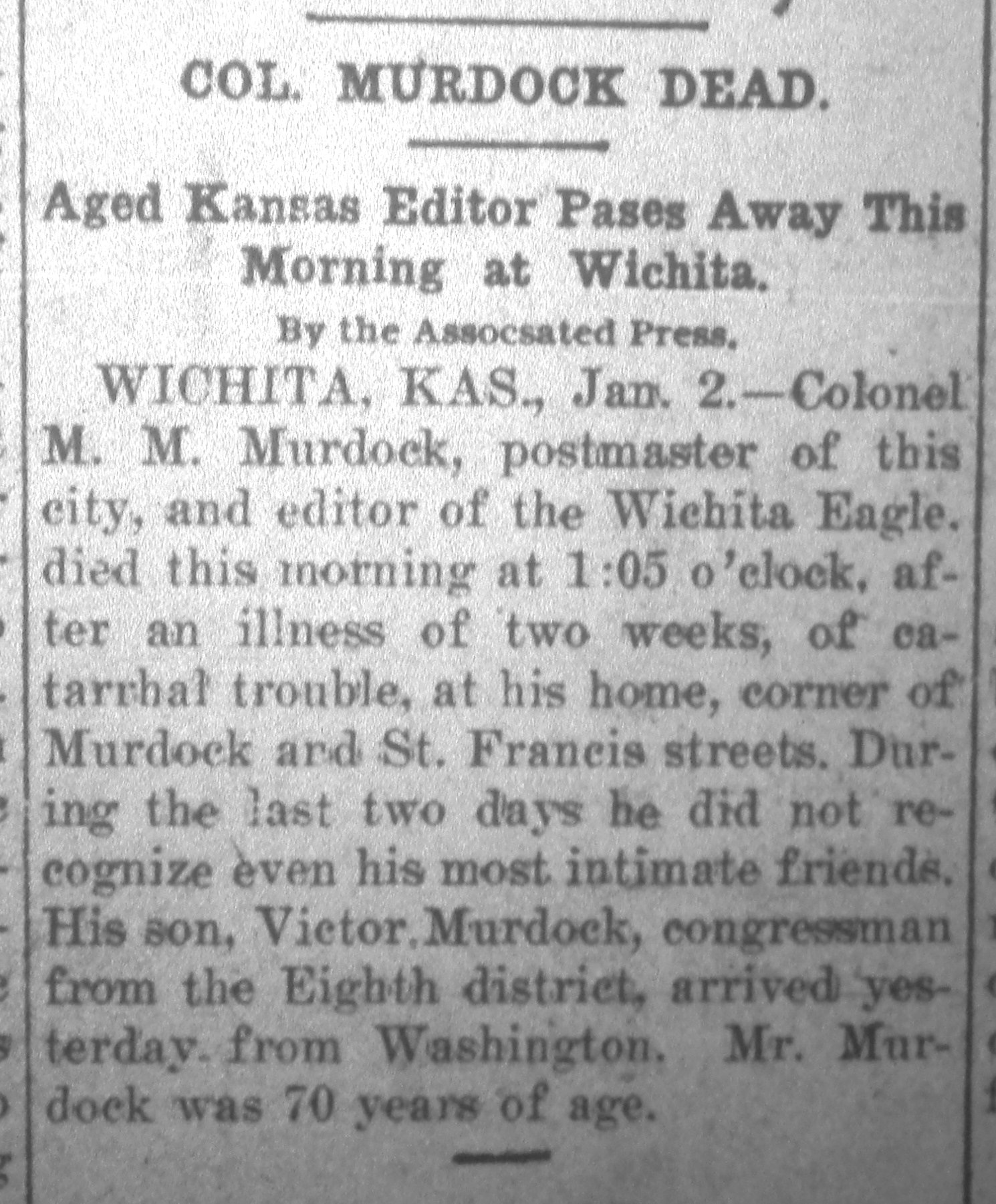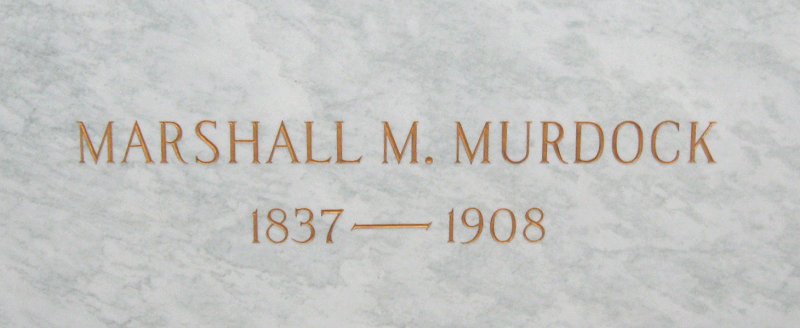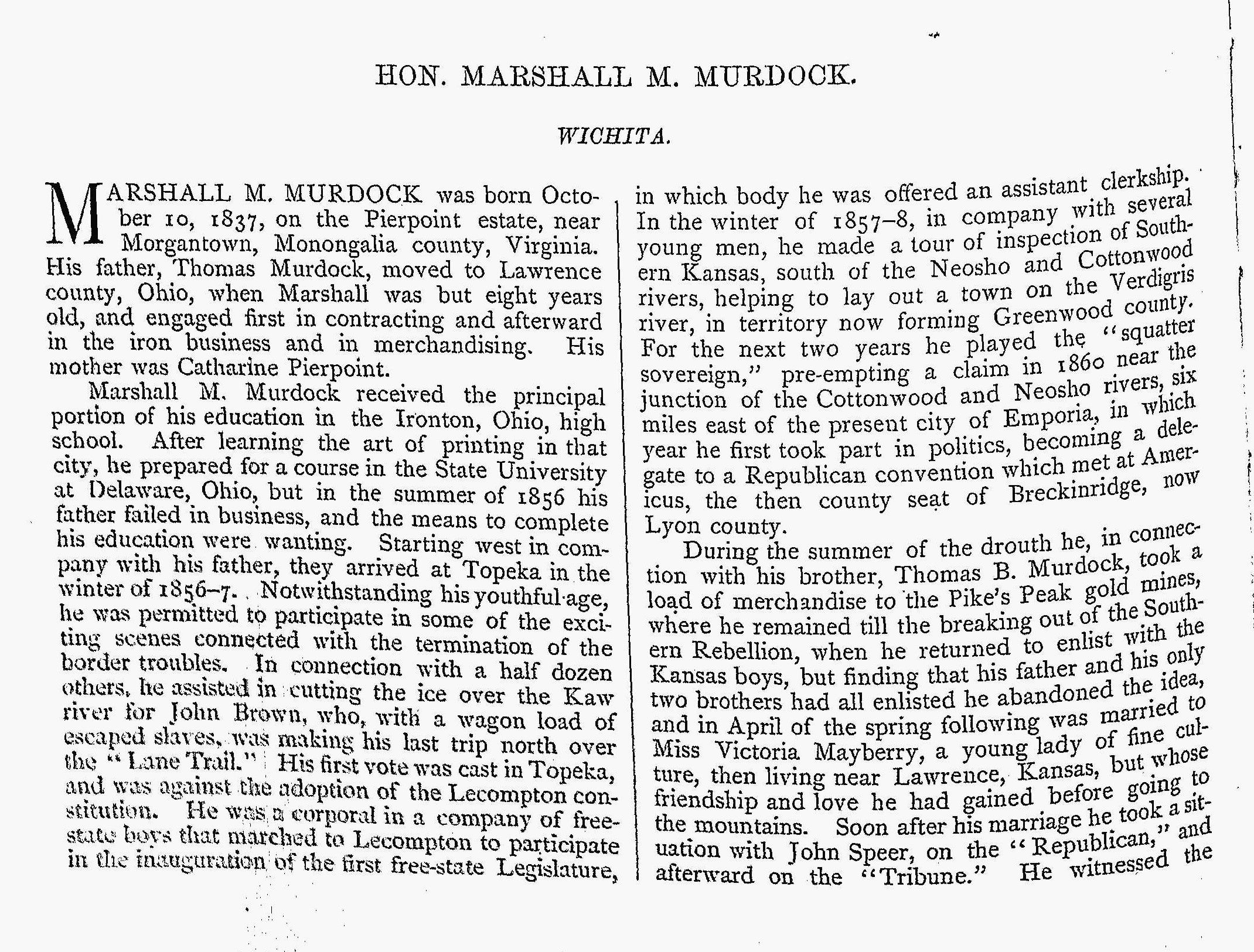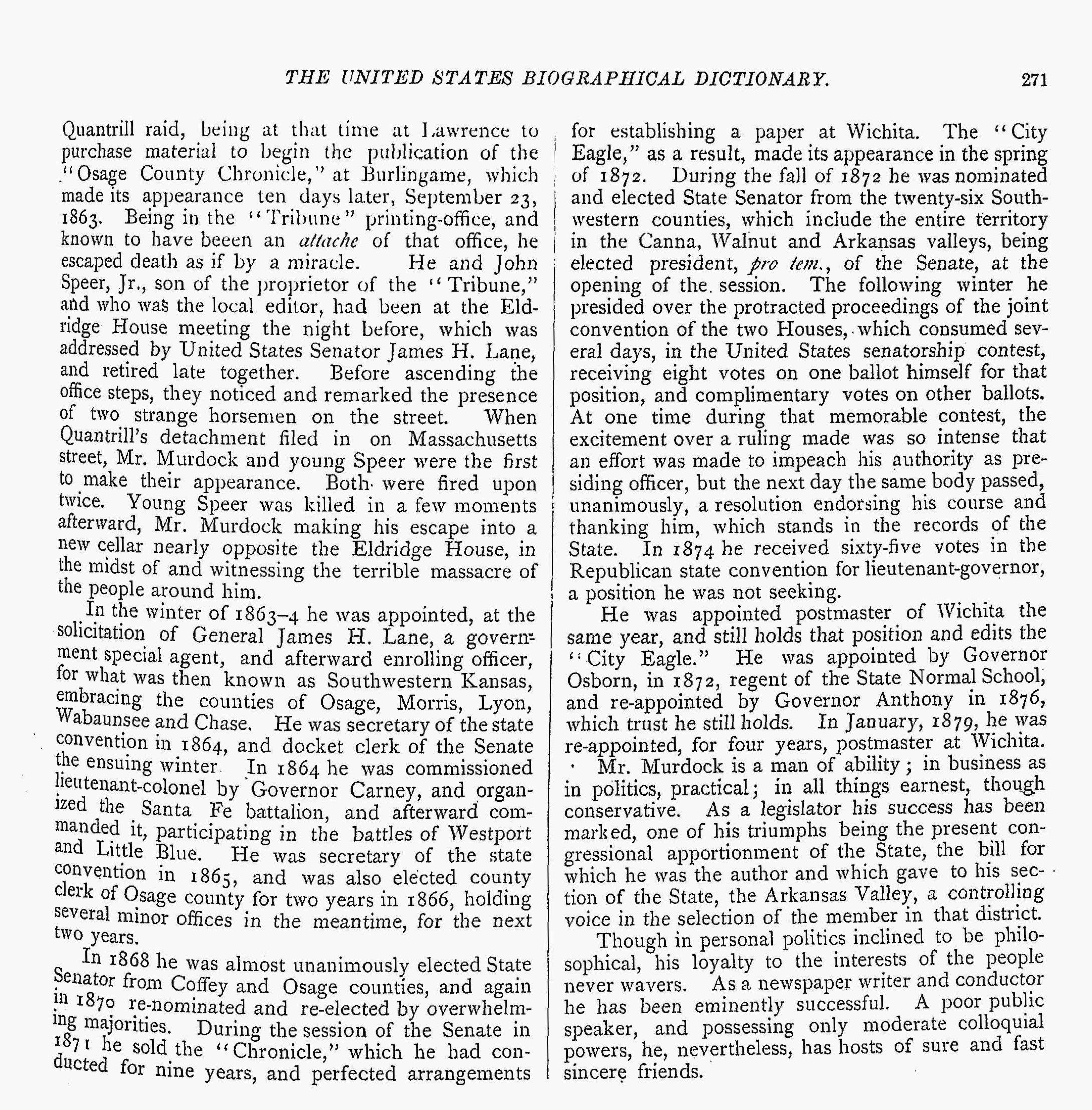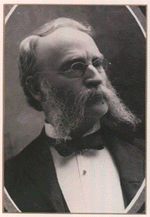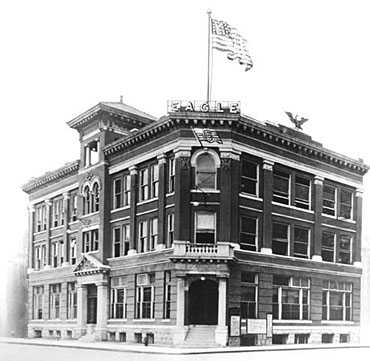When gold was discovered in the Pike's Peak region, it is said that Marshall Murdock was the first to have discovered silver on the site of Leadville. While he was in the gold fields, the Civil War broke out, and his father and two of his brothers enlisted, and he returned to Kansas to care for the younger members of the family. He found employment in the printing office at Lawrence, narrowly escaped the Quantrill raiders, and at the threatened invasion of Kansas by Price, entered the Union service as lieutenant-colonel of the Osage and Lyon county militia. In 1863 Colonel Murdock located at Burlingame, where he established the Chronicle and served as state senator. With the projection of the Santa Fe line toward Wichita, in 1872, he moved his printing office to that point and founded the Eagle.
Soon afterward he was elected state senator and served as postmaster of Wichita for many years. At the time of his death on January 2, 1908, he was holding that position under appointment of President McKinley.
A recent writer says of him: "As he was by far a bigger man than the offices he held, his place in the world must be measured in other ways. He reached his highest stature in his profession. In brilliancy, he had no superior, and in public usefulness, it is doubtful if he ever had an equal. He was the greatest town boomer and town builder the Middle West has ever known. And he was honest in both. He saw, as through a vision, the future glory of the hamlet with which he had cast his fortune. He believed sincerely that it was destined to become the commercial center of the plains, and advocated every public enterprise that could contribute in any way to make it such. He made the Eagle the oracle of the people, and to those inquiring for the land of promise it was never dumb."
- - -
Article by Marie McDonald reporting on a tour through the old Murdock house. Additions to the original house probably made along with repairs after a fire in the 1880s. Only four of the Murdocks' eight children lived to adulthood: Kate (Mrs. Bion Hull) who died in 1893; Pearl Jane (Mrs. Paul Eaton) who died in 1945; Victor, who died in 1946; and Marcellus, who died in 1970. Wichita Eagle, September 13, 1974, page 15A.
When gold was discovered in the Pike's Peak region, it is said that Marshall Murdock was the first to have discovered silver on the site of Leadville. While he was in the gold fields, the Civil War broke out, and his father and two of his brothers enlisted, and he returned to Kansas to care for the younger members of the family. He found employment in the printing office at Lawrence, narrowly escaped the Quantrill raiders, and at the threatened invasion of Kansas by Price, entered the Union service as lieutenant-colonel of the Osage and Lyon county militia. In 1863 Colonel Murdock located at Burlingame, where he established the Chronicle and served as state senator. With the projection of the Santa Fe line toward Wichita, in 1872, he moved his printing office to that point and founded the Eagle.
Soon afterward he was elected state senator and served as postmaster of Wichita for many years. At the time of his death on January 2, 1908, he was holding that position under appointment of President McKinley.
A recent writer says of him: "As he was by far a bigger man than the offices he held, his place in the world must be measured in other ways. He reached his highest stature in his profession. In brilliancy, he had no superior, and in public usefulness, it is doubtful if he ever had an equal. He was the greatest town boomer and town builder the Middle West has ever known. And he was honest in both. He saw, as through a vision, the future glory of the hamlet with which he had cast his fortune. He believed sincerely that it was destined to become the commercial center of the plains, and advocated every public enterprise that could contribute in any way to make it such. He made the Eagle the oracle of the people, and to those inquiring for the land of promise it was never dumb."
- - -
Article by Marie McDonald reporting on a tour through the old Murdock house. Additions to the original house probably made along with repairs after a fire in the 1880s. Only four of the Murdocks' eight children lived to adulthood: Kate (Mrs. Bion Hull) who died in 1893; Pearl Jane (Mrs. Paul Eaton) who died in 1945; Victor, who died in 1946; and Marcellus, who died in 1970. Wichita Eagle, September 13, 1974, page 15A.
Family Members
Sponsored by Ancestry
Advertisement
Explore more
Sponsored by Ancestry
Advertisement
